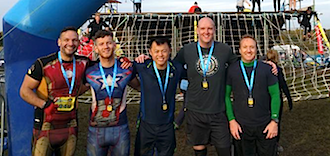Claranet has bolstered its Amazon Web Services and DevOps capabilities with the acquisition of Warrington-based AWS specialist Bashton.
The deal builds on last year's purchases of LinuxIT and Techgate and accelerates Claranet's managed public cloud drive.
Bashton was established in 2004 and works primarily with retail and media customers, helping them to run mission critical web applications on AWS infrastructure.
Its DevOps tooling expertise enables customers to deploy code updates into their web application, as well as monitor and improve performance.
Bashton has annual revenues of £1.2m and its customers include ITV, Odeon, BBC Worldwide, Liverpool Football Club, made.com and Virgin Holidays.
Michel Robert, Claranet UK's MD, said: ""Bashton was a natural company to join Claranet and follows a number of strategically important acquisitions we have made in the past year across Europe to enhance our public cloud capabilities.
"The development of managed services on third party clouds is a key focus for Claranet and the skills and experience brought by Bashton go a long way to helping us to manage more complex applications in these environments.
"As cloud adoption increases, the real value we can add as a managed services provider is in our expertise, tooling and automation capabilities.
"We are therefore focused on developing our advanced hosting capabilities to streamline our customers' operations and underpin the evolution of our managed application hosting services."
Bashton's founder and Director Sam Bashton added: "Claranet's application-centric approach to combining hosting and networking services, including its Cloud Connect service into AWS, demonstrates a solid understanding of the challenges faced by businesses today."
The expanded Claranet Group now has annual revenues of £165m, over 1,000 staff and 5,500-plus customers in the UK, France, Germany, the Netherlands, Spain and Portugal.
 Manchester-based Invosys has presented £2,000 to charity Francis House Children's Hospice following a year of fund raising events including Rough Runner, a 10 mile obstacle course; Spartan Super, a six mile course with 20 obstacles; the Cheshire Three Peaks Walk; the Manchester Marathon, Berlin Marathon and Salford Triathlon.
Manchester-based Invosys has presented £2,000 to charity Francis House Children's Hospice following a year of fund raising events including Rough Runner, a 10 mile obstacle course; Spartan Super, a six mile course with 20 obstacles; the Cheshire Three Peaks Walk; the Manchester Marathon, Berlin Marathon and Salford Triathlon.
 Timico Technology Group's CEO Tim Radford (pictured) had already made his mark in the world of horse racing but having the Timico name etched into the Cheltenham Gold Cup marks a new height.
Timico Technology Group's CEO Tim Radford (pictured) had already made his mark in the world of horse racing but having the Timico name etched into the Cheltenham Gold Cup marks a new height. A management buyout of Cardiff-based Glamorgan Telecom led by MD Kelly Bolderson has been swiftly followed by the appointment of a new management team.
A management buyout of Cardiff-based Glamorgan Telecom led by MD Kelly Bolderson has been swiftly followed by the appointment of a new management team.